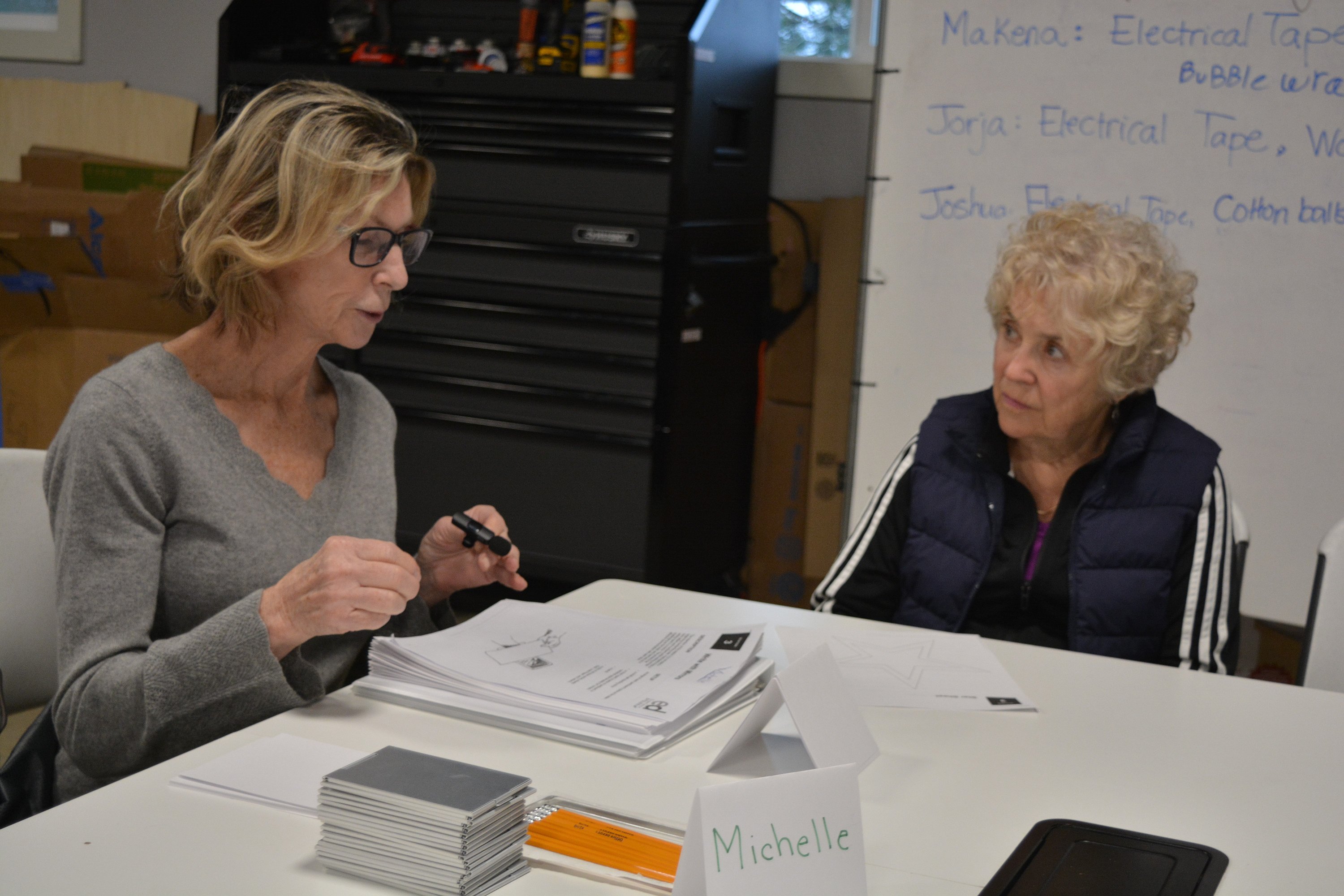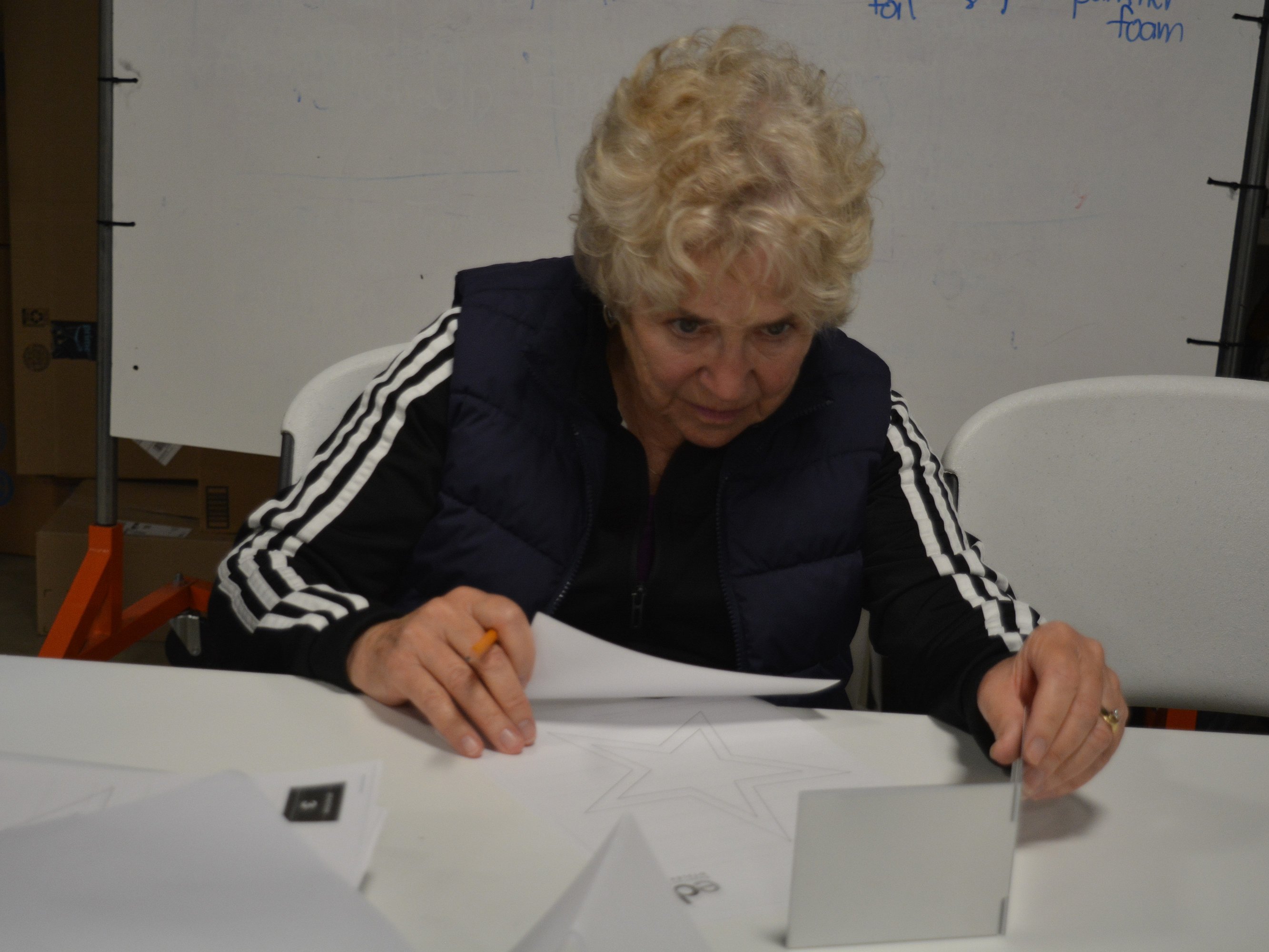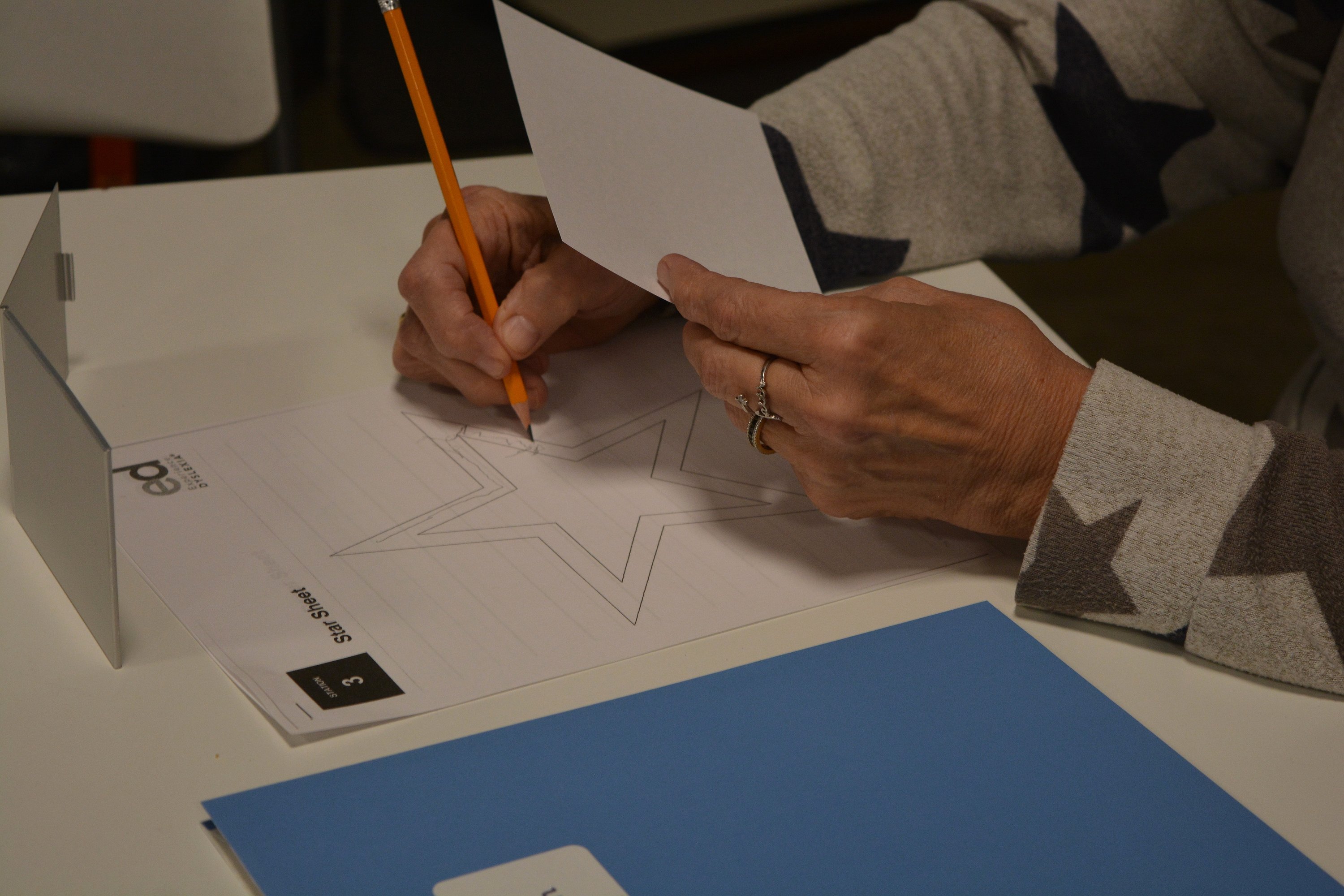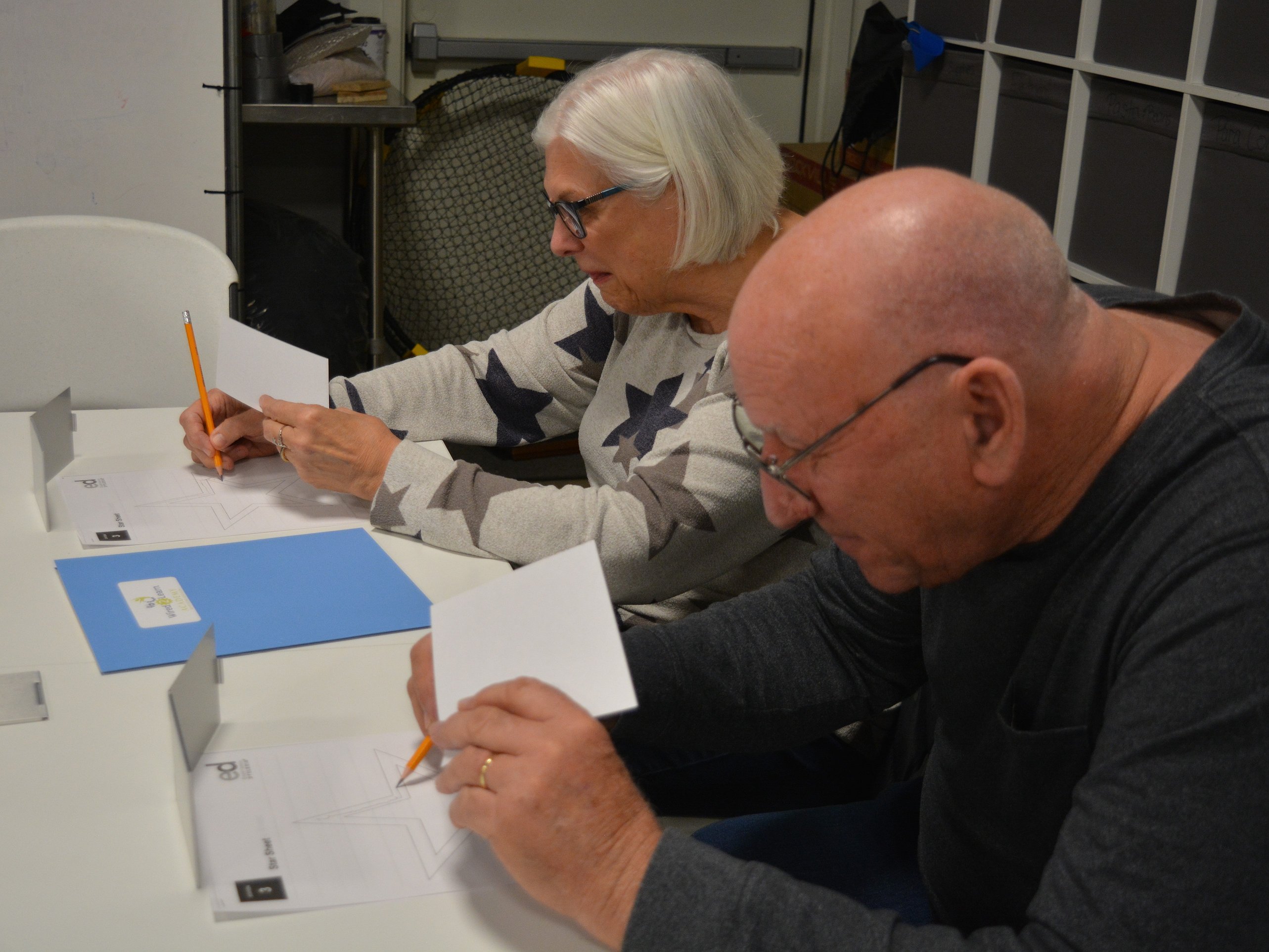'My brain is taxed'
CAROLYN BOSTICK | Hagadone News Network | UPDATED 1 year, 8 months AGO
Carolyn Bostick has worked for the Coeur d’Alene Press since June 2023. She covers Shoshone County and Coeur d'Alene. Carolyn previously worked in Utica, New York at the Observer-Dispatch for almost seven years before briefly working at The Inquirer and Mirror in Nantucket, Massachusetts. Since she moved to the Pacific Northwest from upstate New York in 2021, she's performed with the Spokane Shakespeare Society for three summers. | April 1, 2024 1:08 AM
POST FALLS — A picture accompanied by symbols in a made-up language was the first item people participating in a dyslexia exercise were asked to decode.
Wired2Learn Academy director Alyssa Pukkila went through the exercise before participants arrived, sharing that instructors conducting the simulation will say things like “Did you not study those words last night?”’ "We need to move on,” or “So and so, you did a really good job with that,” as added pressure as participants try to make sense of information in a language they can’t decipher.
“This is the code for wizards and this is the code for elves, they have to read the story remembering these codes. You have to know some to decode. This really replicates how hard decoding is,” Pukkila said.
Beginning readers first learn to decode and comprehend that words are made up of sounds represented by different letters of the alphabet. If we have a hard time retaining the letters and the corresponding sounds they represent to memory, the words on the page can look like gibberish.
Sight words only go so far if people are among the 15-20% of people with dyslexia.
“For a dyslexic kiddo, they may need to see it hundreds of times before they actually commit it to memory. The brain has adapted in several different areas and if there’s weaknesses in any of those areas in the processing, it can show up as a reading issue,” Pukkila said.
One of the biggest misconceptions the instructors want to challenge is that dyslexia only means reading and writing behaviors like flipping letters and reading backward.
“By and large, that’s not the deal with dyslexia. Some kids flip letters, but not all and just because a kid flips letters doesn’t mean they’re dyslexic,” Pukkila said.
Michelle Conger instructed the Wired2Learn staff on how the simulation worked and ran an exercise in the main space of the therapeutic school in Post Falls.
Conger guided Cindy and David Bessey and Joanna Adams on how to use a mirror and index card to impair their ability to do a beginner’s drawing and handwriting task to simulate the experience individuals with dyslexia can have.
The adults chuckled out of nerves and frustration as tracing a star shape became nearly impossible. The three had furrowed brows as they concentrated on their work.
“I feel my eyes are crossed and I feel like my brain is taxed,” Cindy said.
“You’re getting left behind,” Conger said as the pressure amped up during the exercise.
The results around the table were squiggly rather than straight lines and incomplete tasks.
Conger expressed hope that participants will walk away with better insights into dyslexia.
“Dyslexia comes in all shapes and sizes. We are grateful to have all types of learners, give them the accommodations and ability to access their education and teach strategies to help,” Conger said.
In an exercise run by Trina Lariviere, a spelling test quickly becomes a hearing test as the task complicates the objective by dropping the volume of some words.
As both a parent of a student and a board member at Wired2Learn, Lariviere said the three years her daughter has been at Wired2Learn has given her the time and focus to hone her skills and make huge progress.
“She’s become a whole different human. It has taught her so much. One-on-one work has helped and she doesn’t have to compete with 32 other kids for the teacher’s attention,” Lariviere said.
Gaining empathy to accompany those new insights into different ways people learn and understand the world around them is also something Pukkila wanted to convey with the simulation.
“I think people when reading or decoding or math really anything comes easy to you, you don’t even think about how it can be difficult to others,” Pukkila said.
 Wired2Learn hosted a dyslexia simulation and open house Thursday to help families and interested community members understand some of the complications dyslexia can pose in navigating common tasks in school. Michelle Conger explains the mirror writing exercise to Coeur d’Alene resident Joanna Adams.
Wired2Learn hosted a dyslexia simulation and open house Thursday to help families and interested community members understand some of the complications dyslexia can pose in navigating common tasks in school. Michelle Conger explains the mirror writing exercise to Coeur d’Alene resident Joanna Adams.ARTICLES BY CAROLYN BOSTICK

Post Falls prepares for winter
One mechanic is currently in charge of vehicles and specialty equipment for the city of Post Falls.

Fallon's Flight aids families navigating NICU health crises
Fallon's Flight aids families navigating NICU health crises
Baby Fallon Clary only lived for nine days before she passed away, but through her family, her legacy lives on to help other families.

'Holidays and Heroes' on Sunday
'Holidays and Heroes' on Sunday
Holidays and Heroes is back for the 27th year of the event, something Post Falls Police Lieutenant Brian Harrison describes as “a madhouse all at once” as 120 kids pair up with first responders to shop for holiday necessities for local families on Sunday. Lots of planning and coordination comes to fruition on Sunday as 15-16 first responder agencies and 30 community partners make the season a little brighter for families in need.







